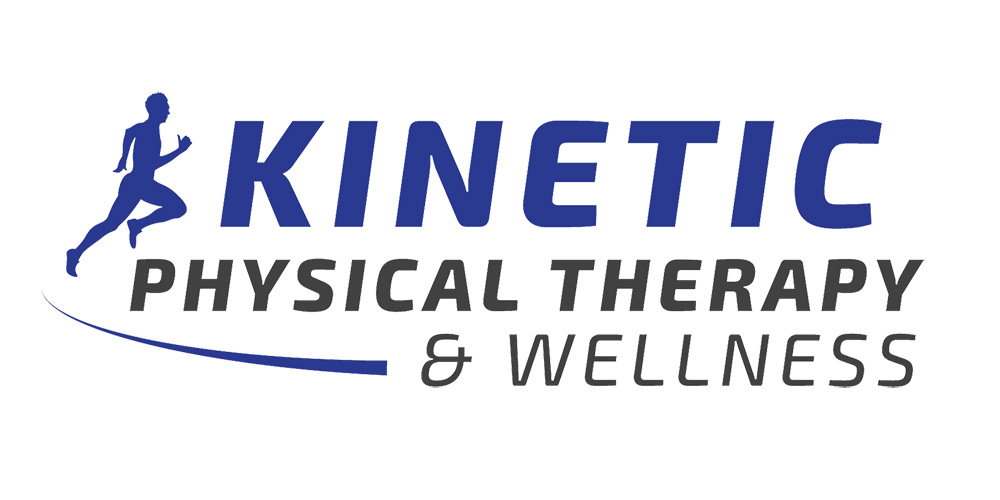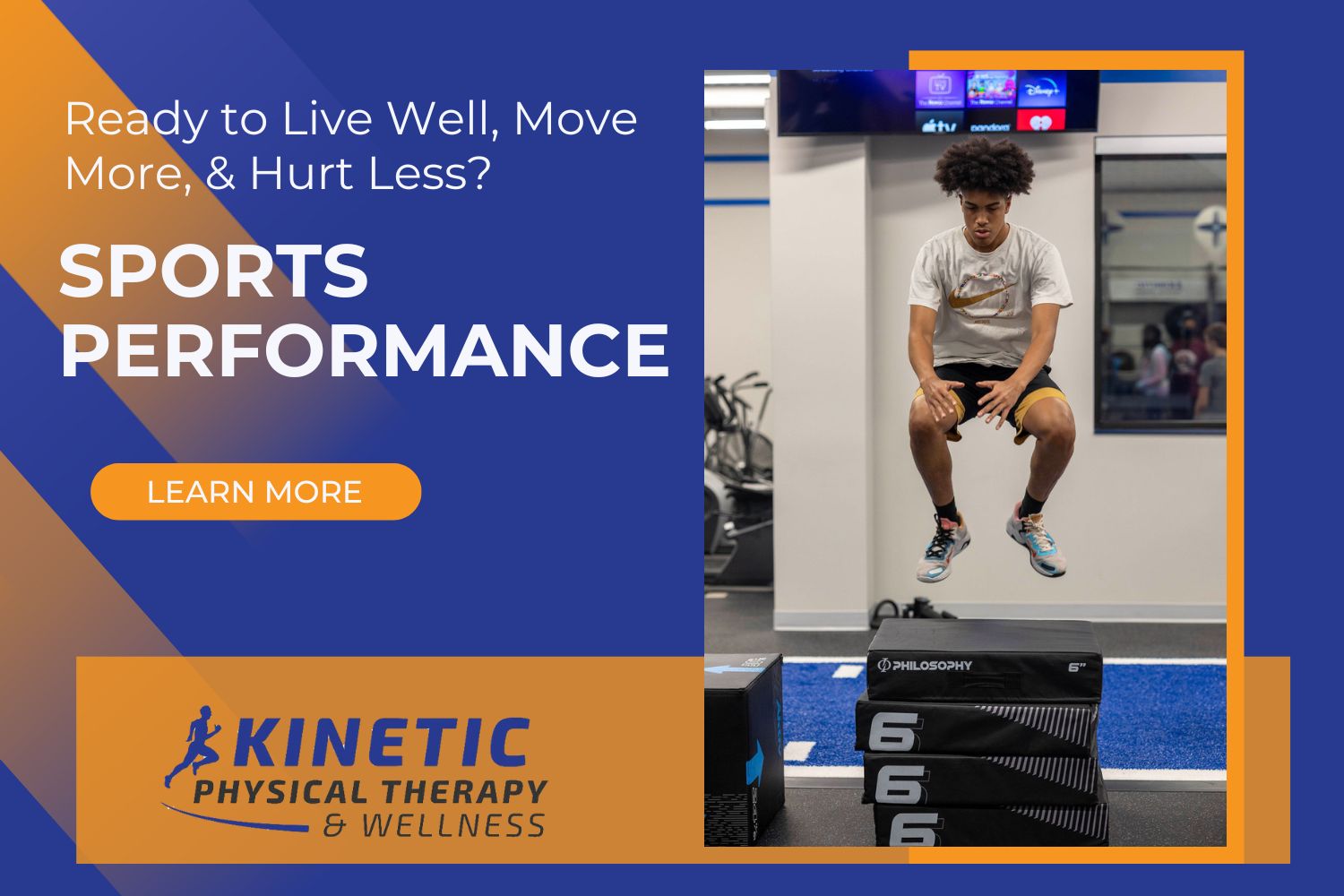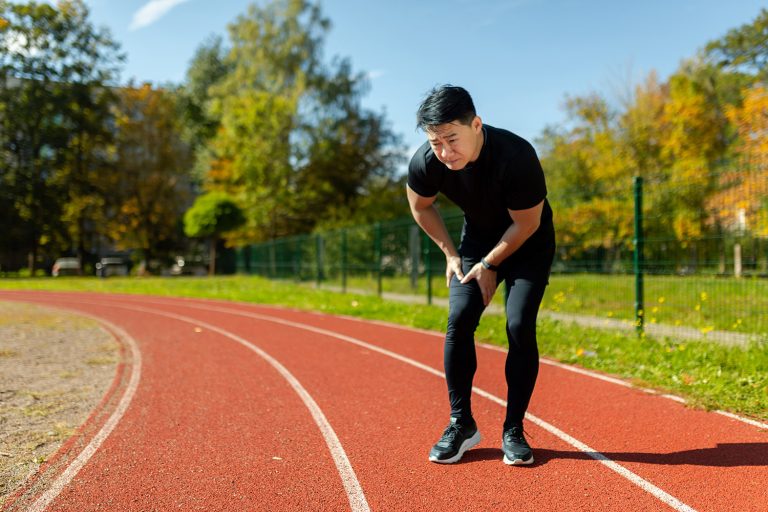

The Role of Nutrition in Athletic Training and Recovery – Fueling Success
Nutrition in athletic training is just as critical as the workouts themselves. Without proper fuel, even the most well-structured training programs can fall short. At Kinetic Physical Therapy and Wellness in Greenville, NC, we take a holistic approach to performance—combining science-backed exercise protocols with expert nutritional guidance to help athletes optimize every phase of their journey. From the warm-up to recovery, what you eat and drink has a direct impact on how you perform, how you recover, and how you progress.
Whether you’re a competitive athlete or a youth participant in our sports performance program, understanding the role of nutrition in athletic training can unlock new levels of energy, endurance, and long-term athletic health.
Why Nutrition in Athletic Training Matters for Every Athlete
Athletes often focus heavily on strength, speed, and strategy—but without proper nutrition, these efforts won’t translate into peak sports performance. Just as a car won’t run efficiently without quality fuel, the human body needs macronutrients, micronutrients, and hydration to function optimally during training.
Nutrition in athletic training involves more than calorie counting—it’s about choosing the right types of fuel at the right times to power your workouts, improve recovery, and support muscle repair. When nutrition is aligned with your training goals, you’ll notice better endurance, fewer injuries, and faster gains.
Timing and Composition of Pre-Training Meals
One of the most important elements of nutrition in athletic training is the pre-workout meal. Eating the right combination of carbohydrates and protein 60–90 minutes before training ensures the body has enough glycogen for energy and amino acids for muscle preservation.
Good options include:
- Oatmeal with banana and almond butter
- Whole grain toast with scrambled eggs
- Greek yogurt with berries and granola
These meals are easily digestible and provide the sustained energy athletes need to power through high-intensity sports performance sessions. Avoid foods high in fat or fiber right before training, as they may slow digestion and cause discomfort.
Hydration Starts Before You Sweat
Proper hydration is a key pillar of nutrition in athletic training. Dehydration can lead to fatigue, poor coordination, muscle cramps, and even injury. Athletes should aim to drink 16–20 ounces of water two hours before exercise, followed by another 8–10 ounces 20 minutes prior to training. In hot or humid conditions, this becomes even more crucial.
Nutrition During Training: Keeping Energy Levels High
For workouts lasting more than 60–90 minutes, especially endurance or high-intensity interval sessions, mid-training fuel becomes necessary. This is where simple carbohydrates—like a banana, electrolyte drink, or sports gel—can be extremely helpful in maintaining blood sugar levels and avoiding performance drops.
Keeping electrolyte levels balanced with sodium, potassium, and magnesium is also vital. These minerals are lost through sweat and must be replenished to support proper muscle contractions and prevent cramping during sports performance training.
The 30-Minute Window of Recovery
The first 30–45 minutes after training is the ideal time to refuel and repair. Nutrition in athletic training emphasizes consuming a mix of protein and carbohydrates during this window to replenish glycogen stores and initiate muscle recovery.
Ideal post-workout options include:
- Protein shake with banana and almond milk
- Chicken and brown rice
- Low-fat chocolate milk and a granola bar
This recovery-focused approach reduces muscle soreness, supports lean muscle growth, and prepares the body for the next training session. Skipping this step can lead to sluggish recovery, fatigue, and diminished sports performance.
Building Habits for Long-Term Performance
Consistent meal planning is essential for athletes—not just around training but throughout the entire day. Nutrition in athletic training includes three well-balanced meals plus snacks that support stable energy levels and immune function.
Athletes should focus on:
- Lean proteins: chicken, fish, tofu, beans
- Complex carbohydrates: quinoa, oats, sweet potatoes
- Healthy fats: nuts, seeds, avocados, olive oil
- Fruits and vegetables: rich in vitamins and antioxidants
These foods not only fuel performance but also reduce inflammation, support hormonal balance, and keep the immune system strong—especially important during periods of intense training.
Importance of Sleep and Meal Timing
Fueling doesn’t stop when the workout ends. Athletes need to plan for adequate sleep and meal timing to fully benefit from training. Eating too little or too late can interfere with muscle repair and metabolic function. At Kinetic, we coach our sports performance clients on developing smart routines around food, training, and sleep—creating a cycle of consistent improvement.
When Supplements Make Sense
While whole foods should always be the foundation, supplements can support nutrition in athletic training when dietary gaps exist. Protein powders, creatine, omega-3s, and electrolyte tablets can be beneficial when used correctly under professional guidance.
However, not all supplements are created equal. At Kinetic, we educate athletes and parents on safe, age-appropriate supplements and help evaluate whether supplementation is necessary based on training volume, recovery needs, and dietary intake.
How Nutrition Supports Injury Recovery
For athletes recovering from injury, nutrition in athletic training becomes even more essential. Nutrients like vitamin D, calcium, and collagen support bone health, while protein and anti-inflammatory foods help accelerate tissue repair. Our team uses an integrative approach, aligning sports rehab protocols with nutritional guidance to promote faster healing and reduce the risk of future setbacks.
We also emphasize that returning to peak sports performance requires fueling the body adequately—especially when rebuilding strength and endurance.
Elevate Your Performance with Smarter Fueling
Athletes at every level have one thing in common: the need for smart, strategic fueling. Whether you’re training hard, recovering from an injury, or preparing for a competition, mastering nutrition in athletic training can give you the edge you need to perform your best, recover faster, and stay healthy long term.
At Kinetic Physical Therapy and Wellness, our sports performance programs provide personalized support that blends training, therapy, and nutrition into one powerful plan. We don’t just train athletes—we fuel them for lasting success.
Please Share
categories
Recent Posts

The Role of Nutrition in Athletic Training and Recovery – Fueling Success
Nutrition in athletic training is just as critical as the workouts themselves. Without proper fuel, even the most well-structured training programs can fall short. At Kinetic Physical Therapy and Wellness in Greenville, NC, we take a holistic approach to performance—combining science-backed exercise protocols with expert nutritional guidance to help athletes optimize every phase of their journey. From the warm-up to recovery, what you eat and drink has a direct impact on how you perform, how you recover, and how you progress.
Whether you’re a competitive athlete or a youth participant in our sports performance program, understanding the role of nutrition in athletic training can unlock new levels of energy, endurance, and long-term athletic health.
Why Nutrition in Athletic Training Matters for Every Athlete
Athletes often focus heavily on strength, speed, and strategy—but without proper nutrition, these efforts won’t translate into peak sports performance. Just as a car won’t run efficiently without quality fuel, the human body needs macronutrients, micronutrients, and hydration to function optimally during training.
Nutrition in athletic training involves more than calorie counting—it’s about choosing the right types of fuel at the right times to power your workouts, improve recovery, and support muscle repair. When nutrition is aligned with your training goals, you’ll notice better endurance, fewer injuries, and faster gains.
Timing and Composition of Pre-Training Meals
One of the most important elements of nutrition in athletic training is the pre-workout meal. Eating the right combination of carbohydrates and protein 60–90 minutes before training ensures the body has enough glycogen for energy and amino acids for muscle preservation.
Good options include:
- Oatmeal with banana and almond butter
- Whole grain toast with scrambled eggs
- Greek yogurt with berries and granola
These meals are easily digestible and provide the sustained energy athletes need to power through high-intensity sports performance sessions. Avoid foods high in fat or fiber right before training, as they may slow digestion and cause discomfort.
Hydration Starts Before You Sweat
Proper hydration is a key pillar of nutrition in athletic training. Dehydration can lead to fatigue, poor coordination, muscle cramps, and even injury. Athletes should aim to drink 16–20 ounces of water two hours before exercise, followed by another 8–10 ounces 20 minutes prior to training. In hot or humid conditions, this becomes even more crucial.
Nutrition During Training: Keeping Energy Levels High
For workouts lasting more than 60–90 minutes, especially endurance or high-intensity interval sessions, mid-training fuel becomes necessary. This is where simple carbohydrates—like a banana, electrolyte drink, or sports gel—can be extremely helpful in maintaining blood sugar levels and avoiding performance drops.
Keeping electrolyte levels balanced with sodium, potassium, and magnesium is also vital. These minerals are lost through sweat and must be replenished to support proper muscle contractions and prevent cramping during sports performance training.
The 30-Minute Window of Recovery
The first 30–45 minutes after training is the ideal time to refuel and repair. Nutrition in athletic training emphasizes consuming a mix of protein and carbohydrates during this window to replenish glycogen stores and initiate muscle recovery.
Ideal post-workout options include:
- Protein shake with banana and almond milk
- Chicken and brown rice
- Low-fat chocolate milk and a granola bar
This recovery-focused approach reduces muscle soreness, supports lean muscle growth, and prepares the body for the next training session. Skipping this step can lead to sluggish recovery, fatigue, and diminished sports performance.
Building Habits for Long-Term Performance
Consistent meal planning is essential for athletes—not just around training but throughout the entire day. Nutrition in athletic training includes three well-balanced meals plus snacks that support stable energy levels and immune function.
Athletes should focus on:
- Lean proteins: chicken, fish, tofu, beans
- Complex carbohydrates: quinoa, oats, sweet potatoes
- Healthy fats: nuts, seeds, avocados, olive oil
- Fruits and vegetables: rich in vitamins and antioxidants
These foods not only fuel performance but also reduce inflammation, support hormonal balance, and keep the immune system strong—especially important during periods of intense training.
Importance of Sleep and Meal Timing
Fueling doesn’t stop when the workout ends. Athletes need to plan for adequate sleep and meal timing to fully benefit from training. Eating too little or too late can interfere with muscle repair and metabolic function. At Kinetic, we coach our sports performance clients on developing smart routines around food, training, and sleep—creating a cycle of consistent improvement.
When Supplements Make Sense
While whole foods should always be the foundation, supplements can support nutrition in athletic training when dietary gaps exist. Protein powders, creatine, omega-3s, and electrolyte tablets can be beneficial when used correctly under professional guidance.
However, not all supplements are created equal. At Kinetic, we educate athletes and parents on safe, age-appropriate supplements and help evaluate whether supplementation is necessary based on training volume, recovery needs, and dietary intake.
How Nutrition Supports Injury Recovery
For athletes recovering from injury, nutrition in athletic training becomes even more essential. Nutrients like vitamin D, calcium, and collagen support bone health, while protein and anti-inflammatory foods help accelerate tissue repair. Our team uses an integrative approach, aligning sports rehab protocols with nutritional guidance to promote faster healing and reduce the risk of future setbacks.
We also emphasize that returning to peak sports performance requires fueling the body adequately—especially when rebuilding strength and endurance.
Elevate Your Performance with Smarter Fueling
Athletes at every level have one thing in common: the need for smart, strategic fueling. Whether you’re training hard, recovering from an injury, or preparing for a competition, mastering nutrition in athletic training can give you the edge you need to perform your best, recover faster, and stay healthy long term.
At Kinetic Physical Therapy and Wellness, our sports performance programs provide personalized support that blends training, therapy, and nutrition into one powerful plan. We don’t just train athletes—we fuel them for lasting success.
Please Share






